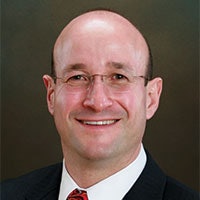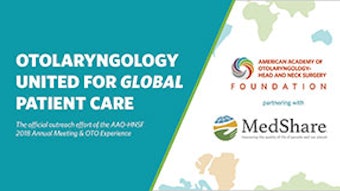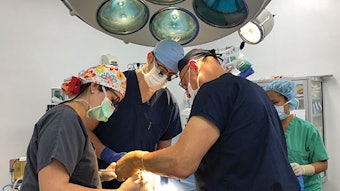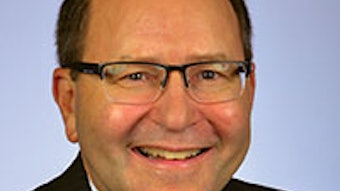The relentless pursuit of quality and excellence
Collectively, as a unified and diverse Academy, we must continue to engage with all stakeholders, including our specialty societies, academic and private practice otolaryngologists, the ABOto, and others, to pursue our mutual goals of continuously improving research, quality, and safety in otolaryngology education and healthcare provision in the United States and around the world.
 Gavin Setzen, MD
Gavin Setzen, MD
AAO-HNS/F Past President
The AAO-HNS/F remains steadfast in its commitment to pursue meaningful, relevant, and impactful quality and research initiatives to ensure optimal patient outcomes well into the future. Research and quality initiatives from the Outcomes Research and Evidence-based Medicine (OREBM) and Patient Safety and Quality Improvement (PSQI) Committees and the Centralized Otolaryngology Research Efforts (CORE) grants program, among others, reflect the dedication and commitment of our members and associated staff in ensuring that we remain the trusted source in propelling otolaryngology to new heights.
In addition, otolaryngology-specific quality outcome measures continue to be developed rapidly, and Reg-entSM, the AAO-HNSF qualified clinical data registry (QCDR), will play a pivotal role in helping every otolaryngologist, in every clinical setting, to measure quality and participate in clinical research, quality improvement efforts, demonstration of clinical effectiveness, MOC and MOL, etc. Issues related to EHR vendor information-blocking are being vigorously challenged, and these barriers to participation are gradually being eliminated.
All of these activities are highly resource-intensive. Since membership dues cover under 40 percent of the cost of programs and services provided by the Academy, I would ask each of you to consider a tax-deductible contribution to the Annual Fund (development@entnet.org) to enable the organization to keep moving forward in accomplishing the goals and objectives of the newly formalized Strategic Plan.
I am confident that graduating residents and fellows entering into practice this summer will be well-equipped to provide the best ear, nose, and throat care available to their patients, utilizing these quality and evidence-based approaches to care delivery. I encourage you to pursue your passion, always providing patient-centered, empathetic, and humanistic care. Whether you choose independent private practice, an employed physician option, or academia, maintain your Academy membership and stay connected and involved. Take full advantage of the robust opportunities available to both the budding surgeon-scientist and the rural solo general otolaryngologist alike.
Along these lines, I believe two other healthcare issues clearly have an impact on quality and safety—mentoring of young physicians and physician leaders and ensuring physician resilience and wellness.
Mentoring programs are an important part of physician education and development at all stages of one’s career, in particular mentoring millennials, our future leadership, who, it is estimated, will compose the majority of the U.S. workforce by 2025. Physicians and mentoring are an essential and integral part of the quality paradigm. Sharing clinical expertise, work-life balance suggestions, business concepts, operations, strategy, organizational structure, and other functions between connectors offers an invaluable opportunity to develop and nurture clinical and life skills necessary for success in clinical practice and other spheres of life. A good mentor sees the potential in the mentee and facilitates his or her development, inspiring confidence, growth, and the pursuit of excellence.
Personally, my mentors and coaches along my career path have been invaluable, and I owe a debt of gratitude to each of them. Equally important, if not more so, is the guidance and support provided by one’s significant other, family, and friends.
WE NEED YOU, our young physicians, to remain engaged. Physician engagement, along with patient engagement, employee engagement, and team engagement, are necessary to work more effectively and to ensure improved outcomes. Each of us can take practical steps to improve engagement through emotional connection, involvement (Academy, committees, advocacy, volunteerism), and commitment demonstrated in our behaviors that will lead to actions to improve healthcare quality. The “20-60-20 rule” suggests that 20 percent of a given group is already engaged and 20 percent is actively disengaged. The remaining 60 percent—the silent majority—is where engagement efforts are needed and are most likely to succeed, be it with colleagues, patients, coworkers, or at the organizational level. Strategic partnerships and adherence to our core purpose and mission will allow us to have a positive influence for a more productive and innovative culture of quality and excellence, here at 1650 Diagonal Road, Alexandria, VA, and in your clinic and operating room.
Wishing you and your families a relaxing and regenerative summer!
















